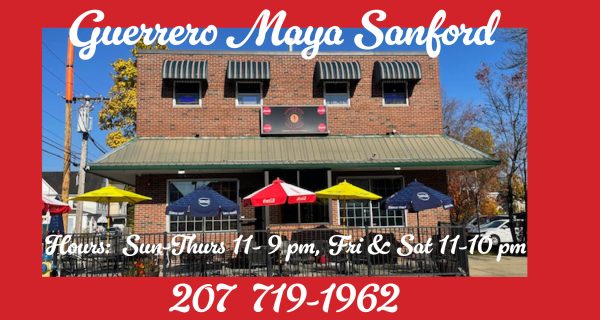Land Bank Supports Code Changes
- February 24th 2024
- City News
By Barbara Crider
At their regular meeting on Feb. 14, 2024, members of the Sanford Land Bank Commission supported code changes that would make it easier for the city to address the problem of dangerous and abandoned buildings, whether they’re vacant or not.
The Commission – comprised of three City Councilors and four other residents of Sanford – heard from Director of Community Development Ian Houseal about several proposed amendments to the city code. The most significant proposed change is the addition of “blighted buildings” to Article VI, which currently addresses how the city responds to “vacant and abandoned buildings.”
The proposed amendment, which must be approved by the City Council, would enable the Code Enforcement Officer to take action to address serious deficiencies in buildings that may affect the safety of occupants, if any, or may be negatively affecting the value of nearby properties, but may not meet the criteria to be adjudged a dangerous building under state law. The amendment includes a detailed definition of the conditions that rise to the level of “blight,” such as lack of maintenance, dilapidation, missing, broken or boarded windows that are not repaired within a reasonable amount of time, fire damage, rodent infestation and an accumulation of rubbish, among other things.
Commissioners agreed that the proposed changes, including the addition of a new category for blighted buildings, are necessary and an important step in improving the vitality of the city.
They were clear, however, that the amendments are intended to address the most seriously neglected properties, particularly those whose owners have made no attempt to address deficiencies for extensive periods of time. Deputy Mayor Maura Herlihy stressed, and fellow commission members agreed, that mere vacancy will not trigger enforcement. In the current market, in Sanford and elsewhere, commercial real estate may become and remain unoccupied for a considerable period, but as long as the property is appropriately maintained, the owner will not be cited for violating the code.
Enforcement of the newly proposed section will be accomplished through the assessment of significant fees for violations. As proposed, once the Code Enforcement Officer determines that a building meets the definition of blight as defined in the code, the owner will be required to apply for a special license. The proposed licensing fee for a blighted building will be $5,000 for a six-month license. The rationale for the hefty fee is to encourage compliance and, when necessary, a timely response from the property owner.
The Commission also received an update from Houseal on progress being made in addressing issues at three properties previously deemed dangerous, as defined in the current code. He said that the city is sending notices to the owners of three additional properties with conditions the code enforcement officer has deemed to be dangerous.
Before adjourning, the commission went into executive session to discuss properties that are in the process of foreclosure for delinquent payment of taxes.
The primary duties of the Land Bank Commission include overseeing inspection and licensing of rental properties, monitoring and making recommendations to the City Council to address dangerous and abandoned properties, and ensuring compliance with health and safety standards, all with the goal of encouraging residential development and revitalization.





